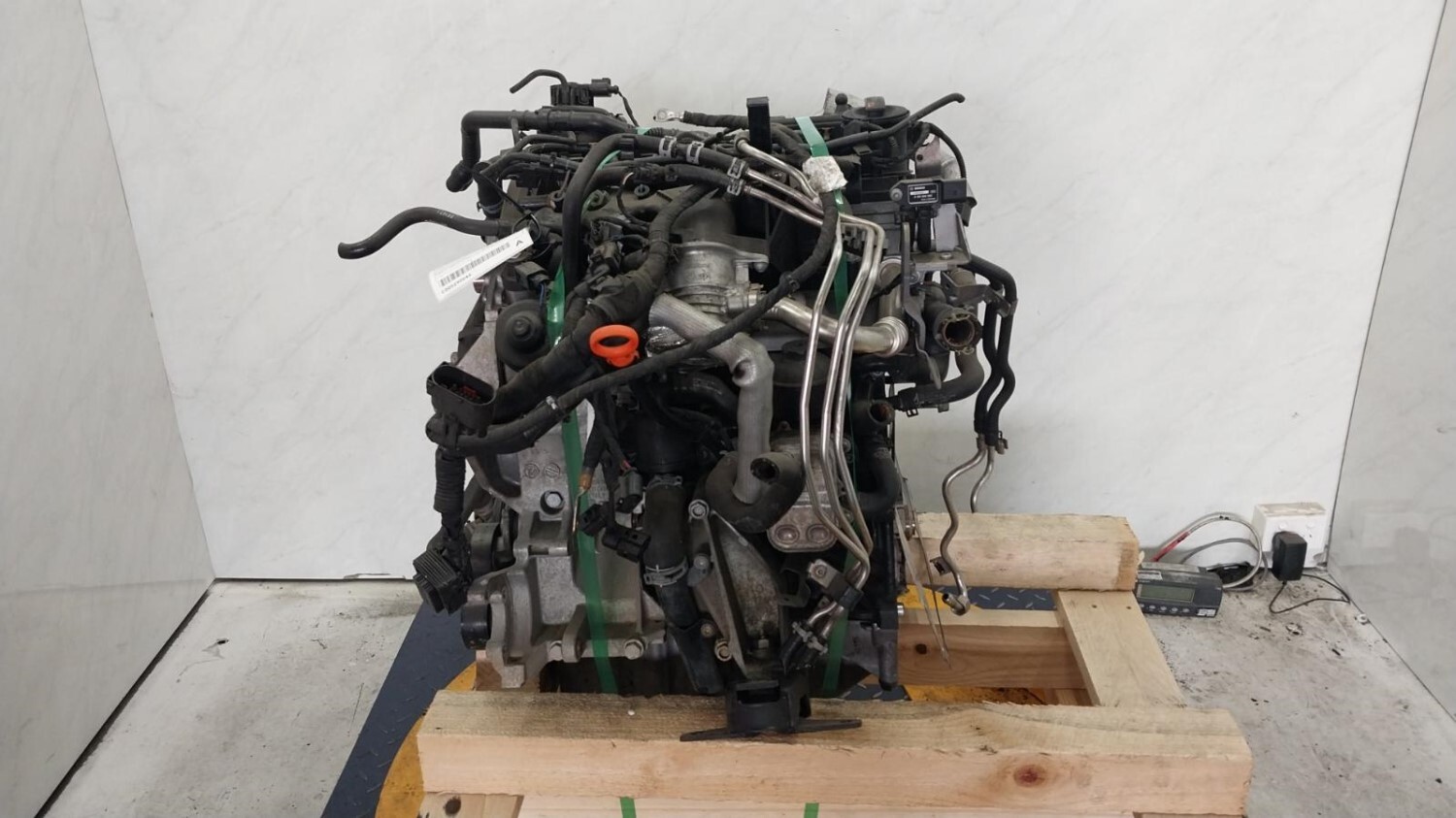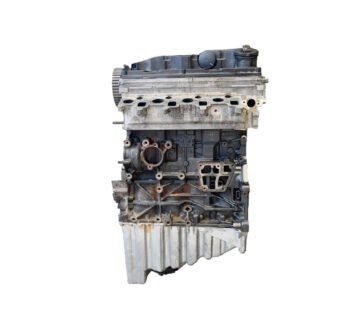Discover High-Performance Amarok Engine for Sale-- Perfect Upgrades for Your Vehicle
Discover High-Performance Amarok Engine for Sale-- Perfect Upgrades for Your Vehicle
Blog Article
Browsing the Refine of Engine Choice: Key Factors to Take Into Account
The procedure of engine option is a multifaceted undertaking that requires careful evaluation of numerous crucial aspects to guarantee alignment with functional goals. Efficiency needs, gas performance, and budgetary restraints are simply the beginning; factors to consider around ecological impact and upkeep support play a crucial duty in the decision-making framework.
Efficiency Requirements
When picking an engine, it is vital to develop clear efficiency demands that line up with the intended application. Efficiency requirements incorporate a series of factors, including power output, torque characteristics, and responsiveness, which must be customized to the details demands of the car or machinery concerned.
Power result, commonly determined in horsepower, figures out the engine's ability to propel a lorry or carry out a job efficiently. Torque, on the various other hand, is important for applications calling for strong first velocity or heavy training capacities. An understanding of the functional environment is likewise essential; for instance, engines made for off-road applications might require various performance attributes compared to those meant for freeway usage.
Additionally, consider the functional load and obligation cycle, as these aspects affect the engine's durability and integrity. In high-load situations, a durable engine design might be needed to avoid premature wear or failure. Furthermore, performance requirements must likewise include factors to consider for discharge criteria and governing conformity, especially in regions with stringent ecological guidelines. By defining these efficiency criteria early in the selection procedure, stakeholders can make informed choices that improve general functional effectiveness and efficiency.
Fuel Efficiency Considerations
While efficiency needs are crucial, gas performance is similarly essential in the engine option procedure, as it directly affects operating expense and environmental sustainability. Fuel-efficient engines eat much less fuel each of job performed, which not only lowers general expenditure but likewise reduces greenhouse gas emissions. As organizations increasingly prioritize sustainability, picking an engine that maximizes fuel performance can enhance company responsibility and conformity with environmental laws.
When evaluating gas effectiveness, it is important to take into consideration the engine's design and innovation - amarok engine for sale. Advancements such as turbocharging, direct gas shot, and crossbreed systems can substantially boost fuel economy. Additionally, understanding the operating conditions and duty cycles of the engine application is important; engines may perform differently under varying loads and speeds
Additionally, suppliers frequently provide fuel intake data that can be made use of to compare numerous engine alternatives. It is recommended to examine these requirements in real-world scenarios to make certain accuracy. Last but not least, the kind of gas made use of can likewise affect fuel performance; different fuels might provide far better efficiency and reduced discharges. In summary, fuel efficiency is a multi-faceted consideration that needs extensive analysis throughout the engine selection process.
Spending Plan and Price Analysis
Budget and cost evaluation acts as a crucial component in the engine selection process, affecting both short-term financial investments and long-lasting operational costs. When examining potential engines, it is necessary to consider not only the initial acquisition cost but additionally the complete expense of possession, which includes installment, maintenance, fuel usage, and possible downtime.
A comprehensive analysis needs to start with the upfront expenses connected with the engine, including necessary adjustments or supplementary equipment. Concentrating entirely on initial expenses may lead to illinformed choices. Examining operating expense over the engine's life expectancy is similarly important, as much more costly engines could provide premium fuel effectiveness or reduced maintenance demands, eventually causing cost financial savings.

Ecological Impact Factors
Comprehending ecological influence variables is crucial in the engine option procedure, as sustainability factors to consider have ended up being significantly important for both regulative compliance go to website and business obligation. Organizations needs to review the discharges produced by numerous engine types, consisting of co2, nitrogen oxides, particle matter, and unburned hydrocarbons. These discharges contribute significantly to air contamination and climate adjustment, necessitating a careful evaluation of the engine's ecological impact.
In addition, gas kind plays an essential role in environmental effect. Engines powered by renewable resource sources, such as biofuels or hydrogen, tend to have a lower ecological influence contrasted to typical nonrenewable fuel sources. Furthermore, the lifecycle evaluation of the engine, from production through operation to disposal, should be thought about to understand the complete range of its environmental implications.

Upkeep and Support Options
When selecting an engine, the schedule of maintenance and assistance choices is a critical factor to consider that can substantially impact functional effectiveness and long life. Comprehensive upkeep intends guarantee that the engine operates at peak performance and decreases unforeseen downtimes. It is necessary to review the producer's support network, consisting of the accessibility of certified specialists and solution centers.
Assessing the ease of access of extra parts is likewise crucial. A trusted supply chain for components can minimize lead times for fixings and maintenance, consequently boosting overall efficiency. In addition, consider the convenience of getting technical documentation and training sources, which are essential for making certain that workers are well-appointed to handle routine and emergency scenarios.
One more essential factor is the guarantee and solution agreements offered by the producer. Eventually, a positive approach to upkeep and assistance not only expands the life of the engine however additionally contributes to the total success of the operation.
Final Thought
Finally, the procedure of engine option demands an extensive examination of various important aspects, consisting of efficiency requirements, gas efficiency, budget plan restraints, ecological effect, and upkeep assistance. By carefully assessing these elements, educated decisions can be made that align with functional purposes and sustainability objectives. Ultimately, a tactical strategy to engine option will ensure optimum performance and longevity while addressing environmental and economic considerations efficiently.
While performance requirements are important, fuel efficiency is just as vital in the engine choice procedure, as it straight affects operating expenses and ecological sustainability. As organizations increasingly prioritize sustainability, picking an engine that maximizes gas performance can improve company obligation and see post compliance with environmental policies.
In addition, understanding the operating conditions and task cycles of the engine application is essential; engines may perform in a different way under varying tons and speeds. (amarok engine for sale)
Examining operating costs over the engine's lifespan is just as essential, as more expensive engines might use premium fuel effectiveness or decreased upkeep needs, ultimately leading to set you back savings.
In final thought, the process of engine option requires a thorough evaluation of numerous vital aspects, including performance demands, fuel efficiency, spending plan restraints, ecological impact, and maintenance support. - amarok engine for sale
Report this page